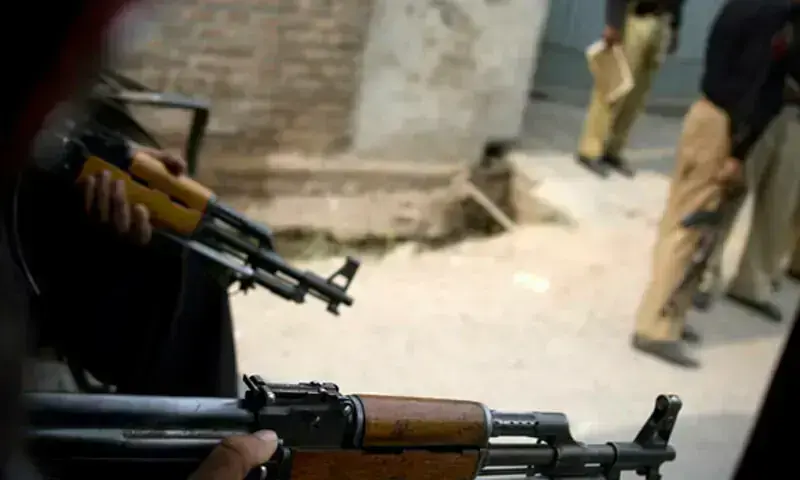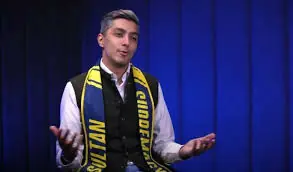THAT remote and distant things are linked in our world is sometimes explained with the example of a butterfly flapping its wings in Brazil, which could trigger a chain of events that contributes to a tornado forming weeks later in Texas. The Battle of Yorktown of 1781 and the fierce clash between Chinese and Indian troops at Galwan in 2020 are, therefore, linked to the state assembly elections currently being held in Bihar. This is the rare state in northern India where the Hindu right is fighting to take power on its own.
Other Hindi belt states such as Uttar Pradesh, Rajasthan and Madhya Pradesh have seen the BJP take power on its own, but in Bihar it continues to rely on allies, who also play a supporting role. This, despite the BJP winning more seats than Prime Minister Nitish Kumar’s party in the 2020 elections. Fears persist today that the BJP, under the leadership of Prime Minister Narendra Modi, could do to Kumar what it did to its allies in Maharashtra: reduce them by dividing their ranks and usurp direct power. Bihar, however, has been a different matter.
The state is among the most fractured regions in terms of caste, much more intractable than other BJP-ruled states. In Uttar Pradesh, for example, the Dalits Bahujan Samaj Party could take power with or without allies. Likewise, the Samajwadi Party of lower-caste peasants was able to govern on its own. Unlike Uttar Pradesh, where it runs its own government, the BJP has so far failed to gain power in Bihar on its own.
Two historical events have influenced the enormously politicized and intellectually raw character of the State. After all, this was the region where Buddha achieved enlightenment 2,500 years ago. Buddhism spread from Bihar and marked the deepest and longest-lasting rebellion in history against Brahminical hegemony in much of ancient India. Therefore, there was already something in Bihar (its name derived from the vihars or Buddhist monasteries) that fueled the anti-caste revolt and spread through Buddhism and Jainism.
Bihar is the rare state in northern India where the Hindu right is fighting to take power on its own.
The other significant development in Bihar, which continues to haunt its fragmented social relations, was the land revenue agreement established by the British Governor-General Lord Cornwallis. The Permanent Settlement created a violent system of zamindars with hereditary rights. They extracted from the peasants everything that could fill the coffers of the East India Company and enough to buy muscle power to run the ruthless system.
Think about it. Had Cornwallis not been defeated by George Washington at Yorktown, Bihar might have been spared the pain of his socially disruptive extortion. Who knows, perhaps Tipu Sultan would have played a different role for India, not unlike what George Washington did for the United States, as an ally of the French and tormentor of British rule. Cornwallis vented his anger against the French for supporting Tipu, whom he defeated at Srirangapatnam in 1792. The relentless exploitation of Dalits and tribes that Cornwallis created in Bihar would erupt into political movements, now dressed as Naxalites or again as advocates of “total revolution” led by the middle castes.
Political earthiness aside, acidic verses about Indian elections abound. One of them, by Ashok Chakradhar, describes a hungry tiger who, far from eating a lamb and its mother, wishes them health and longevity. The lines end harshly: “Itna keh kar sher kar gaya prasthaan. Bakri hairaan. Beta taajjub hai. Bhala ye sher kisi per rahem khanewala hai. Lagta hai jangal mein chunaav aane wala hai.” (The goat shared his confusion with the baby. Hungry tigers do not usually make mistakes. It must be election time in the jungle.)
Likewise, the late Raahat Indori combined military tensions on the border with elections. “Sarhad par bahot tanaav hai kya? Kuchh pata karo, chunaav hai kya?” (There is tension at the borders, but why? Go find out if elections are approaching.) Cynicism aside, the state assembly elections taking place in Bihar, the second most populous state of the so-called Hindi belt states, from where the BJP draws much of its strength, have a military connection.
Two days after the horrific attack in Pahalgam on April 20, a furious Narendra Modi turned up at a public rally in Bihar, not at the site of the communal carnage in Kashmir as one might expect from him. From the rally in Bihar, Modi declared his fight to the end against terrorism. Significantly, he raised the most critical point about the prospects for war in English. Bihar was the platform, not the audience. About 20 days later, Operation Sindoor was unleashed, but was quickly called off with a tentative and, many say, baffling ceasefire. However, in the Bihar election campaign, the brief exchange with Pakistan appears to offer little advantage in the two-phase elections on November 6 and 11 for the 243 assembly seats.
Interestingly, in the October 2020 elections in Bihar too, the prime minister attempted to stir up memories of the killings of Indian soldiers by Chinese troops along the disputed Sino-Indian border in Galwan. In three brief stops at Sasaram, Gaya and Bhagalpur, Modi spoke of the standoff with China, in which soldiers, particularly of the 16 Bihar regiment, were killed. Modi accused the opposition of supporting those who “conspire” against India.
Bihar happens to be the place where Lalu Prasad Yadav, the chief minister of the state at that time, brought LK Advani’s ‘rath yatra’ of 1990, which saw the community and Ayodhya, under control. However, Yadav’s much-applauded courage triggered the fall of the BJP-backed VP Singh government. The BJP gained strength from the event. In December 1992, Babri Masjid was destroyed in the presence of Advani. In 1996, Atal Bihari Vajpayee was the first BJP prime minister. Bihar Chief Minister Nitish Kumar crucially supports Modi as he did with Vajpayee. If it were to flap its wings after the elections, it could cause a tornado in Delhi. Rahul Gandhi is watching.
The writer is Dawn’s correspondent in Delhi.
jawednaqvi@gmail.com
Published in Dawn, October 28, 2025








